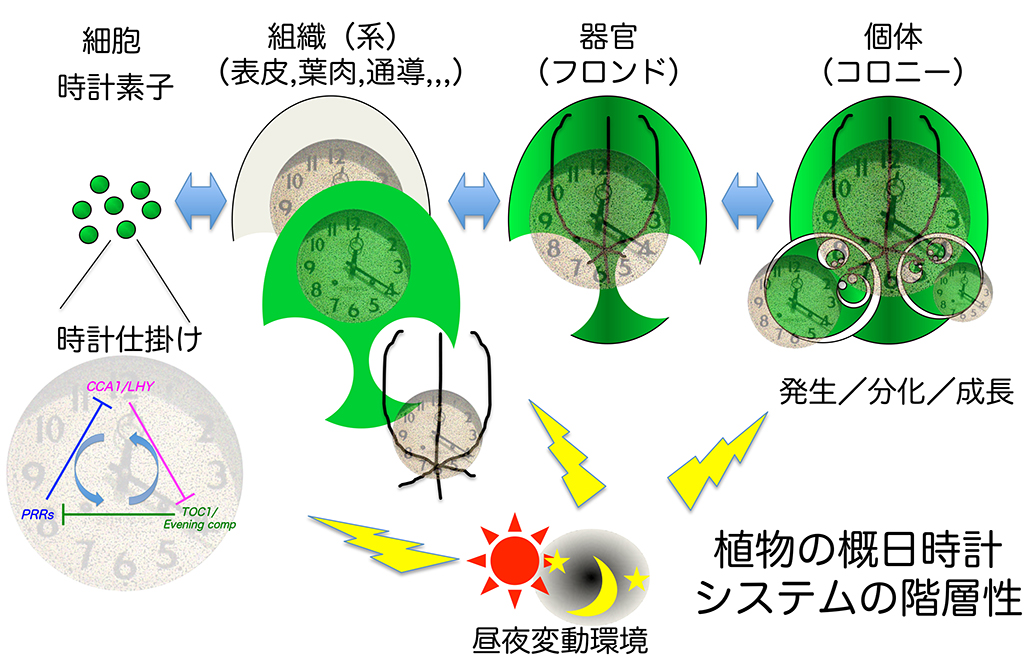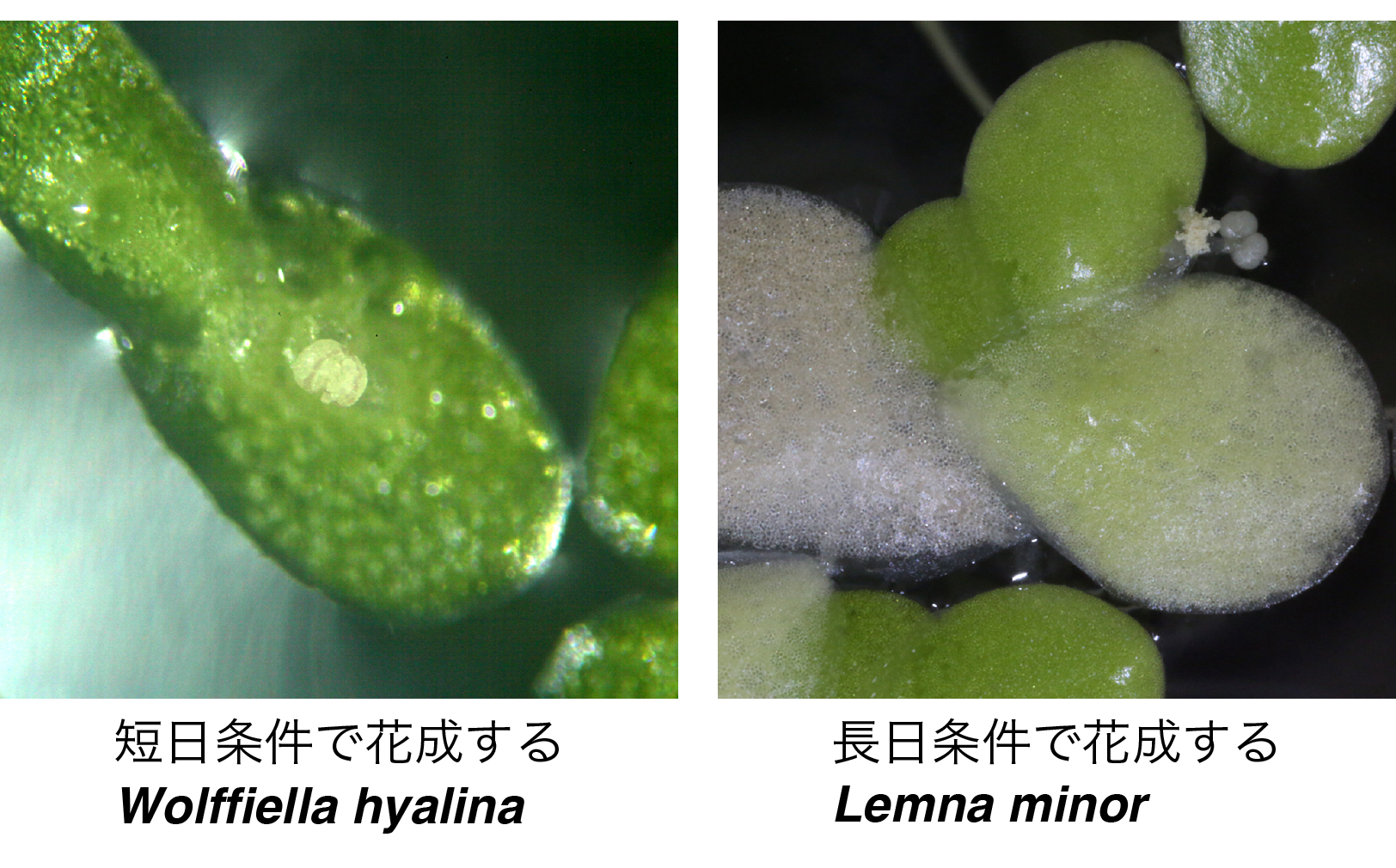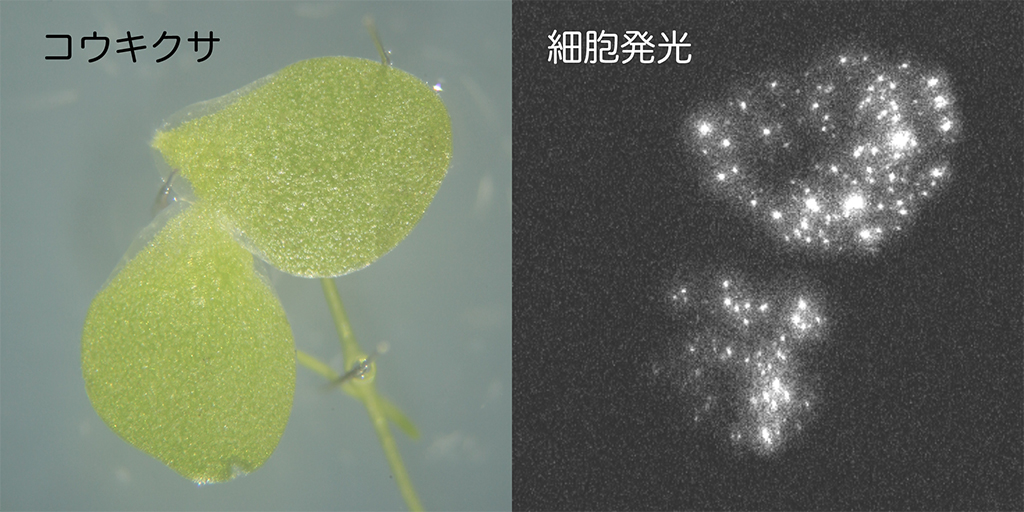Chronobiology
Core Course
Staff
Tokitaka Oyama
- Position
- Associate Professor
- Office
- Science Building 2, Room 201
- Phone
- 075-753-4135
- Fax
- 075-753-4137
- oyama(at-mark)cosmos.bot.kyoto-u.ac.jp
Shogo Ito
- Position
- Assistant Professor
- Office
- Science Building 2, Room 203
- Phone
- 075-753-4130
- Fax
- 075-753-4137
- shogoi(at-mark)cosmos.bot.kyoto-u.ac.jp
Research
Research theme
1) Hierarchy of the circadian clock system of plants
2) Diversity of photoperiodic reaction mechanisms of plants
3) Development of bioluminescence reporter system
4) Diversity of cyanobacterial circadian clock
5) Plant-bacterial interaction
Outline of research theme
1) A circadian clock that measures time based on one day is an oscillator that each cell has. We are studying what kind of time control is done at various hierarchical levels such as individuals / organs / tissues / cells of plants from the viewpoint of cell clock.

2) The photoperiodic reaction is important for controlling the flowering time according to seasonal changes, but it is known that its properties differ greatly even within the same species. We are working to understand the diversity within species and the diversity of the photoperiodic reaction itself, using the members of Spirodela polyrhizum taken from various regions.

3) We are developing a bioluminescence reporter system that enables non-invasive spatiotemporal analysis of various physiological phenomena observed at gene expression levels, including circadian rhythms.

4) Cyanobacteria are the only prokaryotes with a robust circadian clock. There are several known species of cyanobacteria that have lost essential clock genes. We are trying to elucidate the evolutionary path that creates such diversity from the arrangement and functional changes of clock factors.
5) Many bacteria inhabit the surface and individuals of plants, and some of them are known to have beneficial effects on plants such as promoting plant growth. We are elucidating the molecular mechanism that causes such an action.